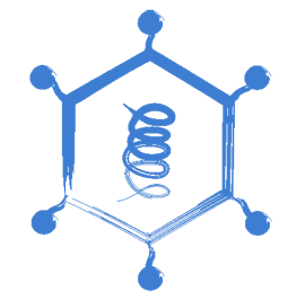Difference between revisions of "Viruses"
| (65 intermediate revisions by 8 users not shown) | |||
| Line 1: | Line 1: | ||
| − | + | {{frontpage | |
| + | |pagetitle =Viruses | ||
| + | |pagebody =A fully infective virus is called a viron. The genomes of viruses are much smaller than those found in prokaryotic and eukaryotic cells and in most viruses the nucleic acid is present in a single molecule. The genomes of viruses can be either single or double-stranded and viruses can contain either RNA or DNA. Due to this viruses can be catagorised into three main groups based on their nucleic acid composition; DNA viruses, RNA viruses and viruses which utilise both DNA and RNA for replication. | ||
| + | |contenttitle =Content | ||
| + | |contentbody =<big><b> | ||
| − | + | <categorytree mode=pages>Viruses</categorytree> | |
| − | |||
| − | |||
| − | [[ | + | [[Immune Responses to Viral Infections]]<br /> |
| + | [[Useful Virology Web Links]] | ||
| − | + | |logo =bugs-logo copy.png | |
| − | + | }} | |
| − | + | [[Category:Infectious_Agents]] | |
| − | + | [[Category:To_Do_-_Clinical/Viruses]] | |
| − | |||
| − | |||
| − | |||
| − | |||
| − | |||
| − | |||
| − | |||
| − | [[ | ||
| − | |||
| − | [[ | ||
| − | |||
| − | |||
| − | |||
| − | |||
| − | |||
| − | |||
| − | |||
| − | |||
| − | |||
| − | |||
| − | |||
| − | |||
| − | |||
| − | |||
| − | |||
| − | |||
| − | |||
| − | |||
| − | |||
| − | |||
| − | |||
| − | |||
| − | |||
| − | |||
| − | |||
| − | |||
| − | |||
| − | |||
| − | |||
| − | |||
| − | |||
| − | |||
| − | |||
| − | |||
| − | |||
| − | |||
| − | |||
| − | |||
| − | |||
| − | |||
| − | |||
| − | |||
| − | |||
| − | |||
| − | |||
| − | |||
| − | |||
| − | |||
| − | |||
| − | |||
| − | |||
| − | |||
| − | |||
| − | |||
| − | |||
| − | |||
| − | |||
| − | |||
| − | |||
| − | |||
| − | |||
| − | |||
| − | |||
| − | |||
| − | |||
| − | |||
| − | |||
| − | |||
| − | |||
| − | |||
| − | |||
| − | |||
| − | |||
| − | |||
| − | |||
| − | |||
| − | |||
| − | |||
| − | |||
| − | |||
| − | |||
| − | |||
| − | |||
| − | |||
| − | |||
| − | |||
| − | |||
| − | |||
| − | |||
| − | |||
| − | |||
| − | |||
| − | |||
| − | |||
| − | |||
| − | |||
| − | |||
| − | |||
| − | |||
| − | |||
| − | |||
| − | |||
| − | |||
| − | |||
| − | |||
| − | |||
| − | |||
| − | |||
| − | |||
| − | |||
| − | |||
| − | |||
| − | |||
| − | |||
| − | |||
| − | |||
| − | |||
| − | |||
| − | |||
| − | |||
| − | |||
| − | |||
| − | |||
| − | |||
| − | |||
| − | |||
| − | |||
| − | |||
| − | |||
| − | |||
| − | |||
| − | |||
| − | |||
| − | |||
| − | |||
| − | |||
| − | |||
| − | |||
| − | |||
| − | |||
| − | |||
| − | |||
| − | |||
| − | |||
Latest revision as of 16:55, 29 July 2014
Viruses
A fully infective virus is called a viron. The genomes of viruses are much smaller than those found in prokaryotic and eukaryotic cells and in most viruses the nucleic acid is present in a single molecule. The genomes of viruses can be either single or double-stranded and viruses can contain either RNA or DNA. Due to this viruses can be catagorised into three main groups based on their nucleic acid composition; DNA viruses, RNA viruses and viruses which utilise both DNA and RNA for replication.
